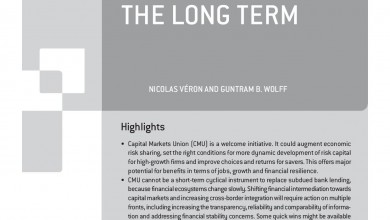This post was first published by Bruegel and is also published on Makronom in German
Against the background of the build-up of troops along the Ukrainian border, Western countries are considering sanctions against Russia. Any new sanctions would come on top of those the West has introduced since Russia’s annexation of Crimea. Partly because of these sanctions, the Russian economy has experienced a lost decade. Russia has built up reserves and reduced its exposure to the dollar, but its economy remains highly dependent on fossil-fuel exports, with the European Union by far its most important trading partner. Despite Russian efforts to build up resilience against further financial sanctions, the unprecedented measures currently under discussion would have a substantial impact on the Russian economy. Meanwhile, different EU countries would be affected to different degrees by sanctions. The EU should design support policies for the most-affected countries to make sanctions against Russia more credible.
Russia’s current account
External pressures, such as the oil price collapse and the financial sanctions in the aftermath of the annexation of Crimea, and internal pressures, which increased the budget deficit, explain the collapse of the ruble that started in 2014. Even though it abandoned exchange rate targeting in 2014, the Central Bank of Russia spent close to a third of its reserves shoring up the ruble and in December 2014 increased the interest rate to 17%. Since then, Russia has made considerable efforts to reduce its external position and its exposure to the dollar. Figure 1 shows that Russia had managed to rebuild a substantial international investment position by 2021. Foreign reserves make up a substantial part of Russian external assets.
Read the full piece here.

